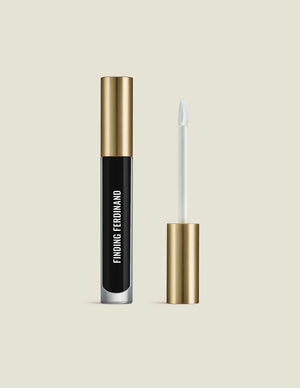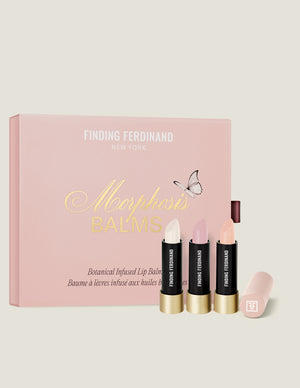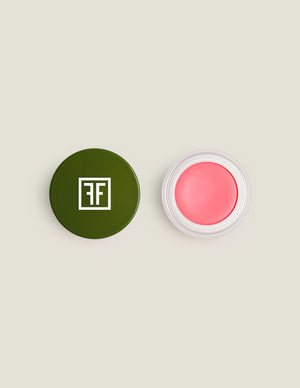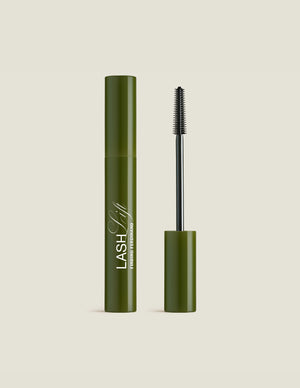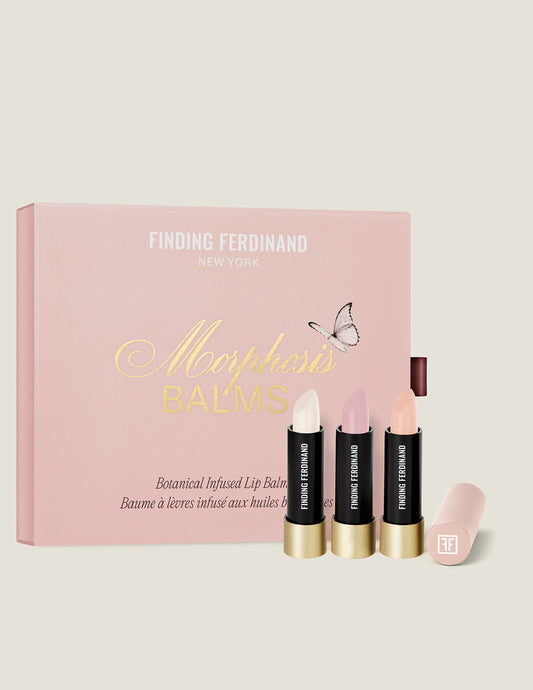"IT MIGHT BE JUST A BEAUTY PRODUCT, BUT I FELT POWERFUL."
To quote my fiancé: “You pressed a few buttons and suddenly you’re Estée Lauder?”
I had been acting a bit cocky after having crafted a new, never-before-seen color via the cosmetics startup Finding Ferdinand, which produces custom-made lipstick shades. I selected a good chunk of fuchsia, a bit of cranberry, with just a hint of mauve. And behold, I gave life to a new shade of lipstick! I am an original. A creator. A genius, really. I had to give my color a name. I went with “The Seduction of John Stamos.”
Startups and big brands are increasingly finding ways for customers to create their ideal products, tailored just for them.
It was quite a simple process: Finding Ferdinand sends a lip palette in the mail, which you use to mix your preferred shade. Then, you submit a rough estimate of the colors through the company’s website, which allows up to 65,000 color combinations.
It might be just a beauty product, but I felt powerful, like I owned that cosmetic.
“Beauty is a very personal thing,” says Finding Ferdinand founder Nhu Le. “People don’t want to be told. They want to choose what looks good.”
As Le sees it, customization is what today’s consumers desire of all industries, not just cosmetics. “There’s definitely a subset of the market that wants customization, especially with millennials and the ‘selfie generation,'” she says. “They want to dictate what’s [personally] looking good.”
Finding Ferdinand is particularly popular with panicked women who discover their favorite shade is being discontinued, as well as brides who demand their bridal party wear the same exact lip color. The company has grown 150% annually in the last three years and has plans to extend into into eyeshadow, blush, and face products. Currently, Finding Ferdinand produces 10,000 units roughly every four months, but it can handle hundreds of thousands of units through its various factories, should there be consumer demand.

Consumers are savvier than they used to be, says freelance beauty expert Bahar Takhtehchian. With access to information about every product on the market literally at their fingertips, the public expects record highs of satisfaction. “There is a need to innovate with that in mind,” Takhtehchian says. “Not everyone has the same color skin… It makes sense that companies are stepping outside the box and responding to people’s needs.”
The ability to compose a unique product versus pacing a store floor has inspired a new generation of startups to take aim at the beauty industry. These companies are reimagining how we purchase everything from nail art to hair products.
MatchCo is an app that turns the iPhone video camera into a colorimeter to determine a customer’s skin tone. The company’s technology can blend a perfect color within minutes from its Santa Monica fulfillment center.
Founders Andy Howell and Dave Gross, who share a background in launching customization programs for companies such as Nike, Reebok, and Zazzle, saw how important a perfect color match was to customers. “We’ve essentially built a search engine for makeup with a self-improving algorithm,” says Gross. “We have now collected what we think is the largest database of skin colors.”
While many of their competitors match a customer’s skin tone to an existing product line, MatchCo creates a hue unique to the customer’s specific coloring. “This is not one of 110 colors; this is your color,” Howell says. “Since we started, we’ve never blended the same color twice.”
The company may rely on high-tech software, but its philosophy is old-school. It’s the same approach that once gave us bespoke Louis Vuitton suitcases.
“We believe [customization] is the new form of luxury, which is really a return to the old form of luxury in the idea of having something made just for you,” Gross says. “Except with using technology, we’re able to scale that and address a much bigger market and make it accessible to more people… The phone is uniquely positioned to be at all places at all times—that’s a huge opportunity.”
Since its January 2016 launch, MatchCo has been downloaded over 100,000 times and fulfilled thousands of individual orders. Its list of investors reflects the intersection of tech and beauty, including former Kiehl’s president Jami Morse Heidegger, Clarisonic president Jack Gallagher, and Silicon Valley investor George “Skip” Battle of Netflix and LinkedIn. The young company plans to build new manufacturing plants as close as possible to growing areas of customers, such as Dallas, in an effort to limit shipping time. Eventually, it hopes to expand into retail to let people see how the magic happens.
Howell and Gross initially thought the service would interest a younger, more tech-focused audience, but a good majority of orders come from women in their 30s and 40s, all the way up to the 60s. These are busy women who don’t enjoy the paralyzing paradox of choice and endless hours of testing at beauty stores. Now they not only get a bottle quickly, but it’s also a perfect fit.

MatchCo intends to serve all women, but it is specifically focused on addressing a sensitive issue within the beauty industry: diversity. The founders witnessed satisfied customers cry upon learning they no longer had to spend their lives blending two colors together or tending to a drawer full of unused foundation that didn’t match their skin. “It was a motivational factor for us,” Gross says.
The way Howell sees it, no customer should have a product that almost matches them. “No one should ever say your makeup looks great,” he says. “They should say your skin looks great.”
Industry giants are catching on. Lancôme released a custom-made foundation service called Le Teint Particulier, which is currently available in 11 Nordstrom locations. It too uses patented technology to scan your complexion, but the difference lies in the personal attention you receive thereafter. Since not every woman wants to wear her exact match—some prefer to look tanner, or warmer, or lighter—a brand representative tweaks the product to the client’s liking.
It’s an involved experience that, as Rosemarie Cirminiello, VP of Learning of Lancôme, explains, builds a strong relationship between brand and customer. “We’re starting to see clients stay longer, wanting to play with makeup,” she says. Lancôme plans to expand the service to roughly 30 more Nordstrom stores in the coming year.
Consumer involvement can create strong bonds. Like the do-it-yourself “maker” movement, people increasingly want to create. “From start to finish, you feel like you’re involved and getting a product that you like,” Takhtehchian says.
MatchCo uses this sentiment to further its database. Each time a shopper submits her unique color, it becomes part of their algorithm. “Consumers change when they become co-creators with a brand,” Gross says. “From a customer’s perspective, it’s redefining the way they think about how they should be served…. It’s disruptive in that they’ll never think about beauty the same way again when they know they can have something made just for them.”
Haircare is also benefitting from personalized treatment. Function of Beauty sells customized shampoo and conditioner, with users picking everything from its properties (“anti-frizz,” “prevent hair loss”) to color (“amber,” “sage green”) to the scent (“grapefruit hibiscus,” “cucumber mint”). There are over 12 billion possible combinations to allow the company to live up to its official credo: “celebrate individuality.”
Function of Beauty saw 50% month-over-month growth in revenue in its first six months. The company also went through the Winter 2016 Y Combinator and closed with a seed round of $1.5M. According to Function of Beauty founder Zahir Dossa, the entire market is headed toward personalization.
“If you look at any other industry, from social media to fashion, from technology to food, you will notice that customization is definitely the trend and the future,” Dossa says. “Beauty is the only industry that is lagging, and the boom of Birchbox and others demonstrates that people are still searching for the perfect products. The problem is that the only way to make a perfect product for someone is to tailor it just to them.”

How are these items made? For Function of Beauty, a series of individual computer-controlled pumps are connected to ingredient supplies. Once the client has made her selections in her haircare profile on the company’s website, a computer looks up the precise ingredient amounts from a database and controls the necessary pumps to output the desired amount of each ingredient into the bottle. Next, a machine prints the name of the customer and product directly on each bottle and places a barcode on it. The whole process takes under one minute.
Some companies personalize through curation—or “assembling” several products together into a unique whole. Ittsē allows customers to pick and choose cosmetic staples—like shadows, blushes, lipsticks, and brow powders—into a one-of-a-kind palette. The company launched in May 2015, and as of September 2016, sales had gone up 200% in 12 months.
In many instances, big brands provide more “tweaking” and “mixing” than full-on customization. Makeup brand Cover FX sells Custom Enhancer Drops to alter a pre-existing moisturizer or foundation. Skincare company Kiehl’s recently released their Apothecary Preparations, a line of tailored-made facial concentrates as well as an in-store service to address unique complexion concerns.
Skin Inc., available on Sephora.com, offers a computerized quiz that asks you everything from stress levels to daily hours of sleep to level of pollution exposure. After nearly two dozen questions, an algorithm recommends a serum-based skincare program for individual needs. The program, created in part with Shekhar Mitra, who pioneered technology for popular products such as Crest White Strips, won more than 80 beauty awards worldwide. It entered the U.S. market in 2012 and doubled its revenue last year, becoming a top seller for Sephora.
Over the past five years, the beauty retail giant has seen a dramatic increase in interest for customized products. “The trend of customization reflects how our clients are consuming media in the digital age—at the touch of a button you can access anything and filter to find just what appeals to you,” says Artemis Patrick, SVP of Merchandising for Sephora. Thanks in part to beauty bloggers, brand sites, and social media marketing, the consumer is more educated, more engaged, and super-selective.
Sephora also boasts numerous apps targeted to the picky shopper. Most are cross-referenced against thousands of SKUs: The ColorIQ system, built in conjunction with color authority Pantone, uses a scanner to help find the best matching foundation and concealers; Sephora Virtual Artist lets you try on over 3,000 lipsticks and 90 false eyelashes; Skincare IQ is an in-store gizmo that analyzes customers’ dermatological needs.

Even fragrance is seeing a spike in clients requesting bespoke, with artisanal brands releasing multi-scent sets designed for layering. While customized scents aren’t necessarily new, they were primarily restricted to a very small, high-end market, not something you’d see at a mass retailer. “Back in the olden days, you would never layer fragrance,” Patrick says. “But now it’s all about customizing.” To this end, Sephora carries brands like Atelier Cologne, Commodity, and Derek Lam, which offer perfume-blending kits.
Sephora’s myriad efforts will only intensify in the coming years. From apps to in-store services, the company has every intention of maintaining—and building upon—its status as the one-stop-shopping destination for today’s beauty enthusiast.
“We definitely want to ramp up efforts,” Patrick says. “This is not a trend. This is something our clients are wanting and demanding… We’re going to do it the right and meaningful way.”
Making the experience meaningful, according to many companies, comes down to providing customers with the satisfaction that they’ve created something unique. “What would make a woman feel happier than a custom experience?” says Lancôme’s Cirminiello. “It’s like finding your soulmate.”
Originally seen on Fast Company: Most Innovative Companies

